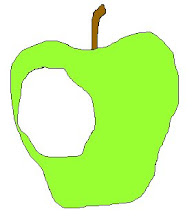What is an economy? By definition, good old Webster tells us it is the arrangement or mode of operation of something, specifically a system of interaction and exchange. It is also said to be the structure or conditions of economic life in a country, area, or period.
OK, then... in the strictest sense, an economy is the structure of exchange for a given environment.
In our world, when talking about "the economy", this exchange is most often assumed to be trading money for "something" like goods, services, experiences, whatever. In other words, commodities.
But an interesting thing happened to me the other day. I was participating with some friends in our sailing club's annual work day and as conversations occur, my friend John and I began to talk about... gasp... Facebook! He and I had connected online a few weeks before, but this was our first in-person meeting since.
The conversation progressed to discussion of the enormous, nearly biblical, availability of information online, how we access that information, and how we are able to apply what we've learned.
He shared with me a story of his friend that had been having muscle and dexterity problems in his hands. The ailment was causing him to loose the ability to do any number of common hand movements without significant pain and/or discomfort. None the least of which was the inability to properly hold a golf club! While I'll be the first to admit golf isn't my cup of tea, I have been known to knock a couple buckets of balls around the range from time to time. Nonetheless, I concede that golf for some is serious (Tiger). And not being able to play well, in anything we enjoy, is a bummer.
So John explained how, as a physician, he goes straight to google these days and plugs in some search parameters.
In this particular case, his search yielded an obscure medical journal from some Asian country that not only outlined the exact ailment he was dealing with, but gave it a name and discussed possible treatment protocols that have had good success rates.
John, armed with this info, selected a treatment for his “patient”, implemented the treatment, and awaited the results.
Here's the kicker... the treatment was not medicinal or surgical. It was procedural. It was exercise and technique! The treatment was simply to hold the club in a different manner. And it worked.
Let's look at what really happened here; two people interacted, exchanged information, and implemented actions to solve a problem.
This IS an economy! Money didn't change hands, but a common "need" was met; John realized his need to practice his trade and help a friend, and the friend realized relief for his ailment. Both were satisfied.
As I listened to this story, I instantly recognized a concept I’d been studying recently- the idea of a resource based economy. An economy not based on monetary gain or achievement, but on satisfying needs as necessary to promote a fulfilling existence.
On a small scale, this seems to work well. But in a global sense, could we ever move from a commodity/consumption/acquisition based economy to a resource based economy?
This is something that only time will tell. But it’s a concept that can work, ultimately, if we wean ourselves off concepts such as monetary gain, suppression of underdeveloped cultures, pillaging of natural resources and general wasteful consumption.
How’s that for something to think about!
Thursday, April 16, 2009
shifting our thinking about economic concepts
Labels:
acquisition,
based,
capitalism,
commodity,
consumption,
culture,
economic,
economy,
global,
money,
resource,
society
Subscribe to:
Post Comments (Atom)


1 comment:
That is a fascinating subject to think about and several countries still operate on the barter or trade system as far as I know. However, the monetary economy as we know it does date back to biblical times, so reversing that trend...it could happen...but maybe not until we have a female black President. Baby steps. :-)
Post a Comment